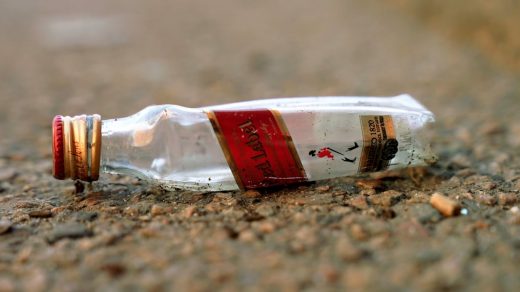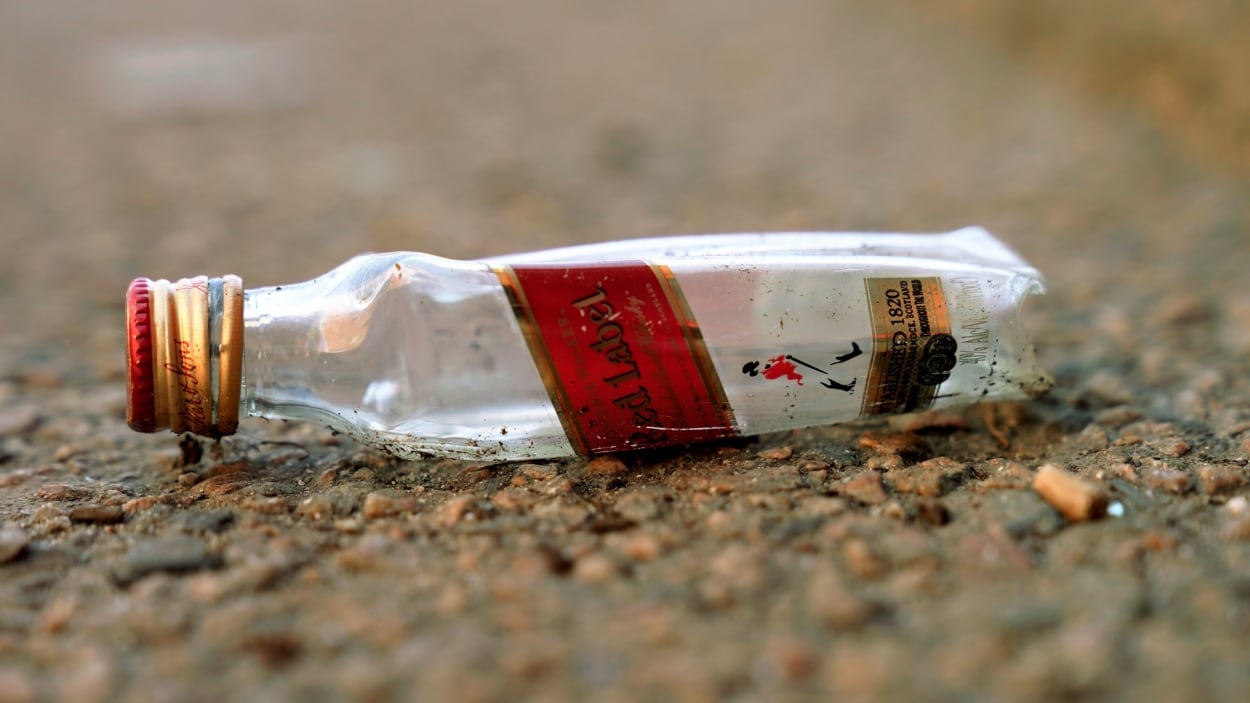Boston talks of banning little booze bottles
By MARK PRATT—Associated Press
The little bottles of booze at Huntington Wine & Spirits are displayed prominently at the front counter of the Boston store, some stacked neatly in display cases, others tossed haphazardly in trays.
Steven Rubin, whose family has owned the store since 1970, estimates that they account for up to 15% of his sales.
“They are a major part of our business, and have a high profit margin,” he said. But he might be on the verge of losing those sales.
Boston City Councilor Ricardo Arroyo has proposed banning city liquor stores from selling the bottles that hold from 50 to 100 milliliters (1.7 to 3.4 fluid ounces), which he says would address both alcohol abuse and excessive litter.
“The fact that this handled even one of these two issues would have been enough for me,” Arroyo said at a City Hall hearing on the issue on Monday. “The fact that it plays in both of these issues I think is an overwhelming reason to move forward with something like this.”
The little bottles are favored by people who want to drink in their vehicles because they are easy to hide from police, and the empties can just be tossed out the window, Arroyo said. Parents have told him that they are also preferred by underage drinkers because they’re easy to hide.
The ultimate decision on a ban on minis rests with the city’s Licensing Board, which regulates the city’s roughly 280 liquor stores. Board Chair Kathleen Joyce said Monday that applicants for new licenses or license transfers are already asked to voluntarily agree not to sell the little bottles.
Other Massachusetts communities that have banned the sale of the tiny bottles have seen benefits, Arroyo said.
In 2018, Chelsea, the city just to the north of Boston, became the first municipality in the state to ban liquor stores from selling the bottles that cost as little as 99 cents.
The city’s ambulance service responded to 742 calls for alcohol-related issues in 2017—and then 556 in 2018, when the ban was in place for about half the year, Arroyo said in his proposal.
The number of people taken into protective custody dropped by 20% the first two years of the ban and alcohol-related hospitalizations plummeted, Chelsea Police Chief Keith Houghton said in a recent interview.
“It wasn’t just the aesthetic problems, with bottles everywhere, we were dealing with public intoxication, we were taking people into protective custody and transporting them to the hospital,” he said.
A ban would also benefit the environment, Arroyo said.
The discarded bottles, found clustered by the side of the road, in parks, and in waterways, are not biodegradable or recyclable. In the Hyde Park neighborhood that Arroyo represents, a community volunteer cleanup crew collected 10,000 of the bottles in two months, he said. Banning the sale of miniature bottles had a measurable effect on reducing litter in Falmouth, Alan Robinson, chair of the Falmouth Solid Waste Advisory Committee, said in a recent telephone interview.
Before the Cape Cod community banned their sale in 2021, 32% of the items picked up during roadside community trash collections were the small bottles, according to Robinson. Since then, roughly 6% of the litter items are minis.
“It has made such a difference,” he said, adding that “everyone” he speaks with reports fewer of these tiny bottles.
Liquor stores are pushing back. When the bottles are banned, locally owned businesses suffer financially, and the underlying problems of litter and alcohol abuse aren’t adequately addressed, Robert Mellion, the executive director of the Massachusetts Package Store Association, said in a recent telephone interview.
When Chelsea banned the sale of the bottles, the local stores saw a collective $6 million loss in business in several months, while stores in neighboring communities like East Boston and Everett experienced higher sales.
“So people were still buying them, they just moved over to the next community,” he said. Or, Rubin said, they simply buy a larger bottle of alcohol.
“If you eliminate the 50 milliliter and 100 milliliter bottles, all you do is create a market for the larger bottles, and how does that address alcoholism? People just buy the next size up and drink more,” Rubin said.
He and Mellion acknowledge that the little bottles are a trash problem, but a sales ban is not the answer.
The 800-member Massachusetts Package Store Association supports an expanded bottle bill that would include a deposit on the miniature bottles, Mellion said. “I think there we have a statewide solution to the trash problem,” he said.
Jim Rossi, a Huntington Wine & Spirits customer who stopped in the store on a recent afternoon for some beer and tiny bottles of cinnamon whisky, agreed.
“If they’re worried about the litter, why don’t they put a deposit on them?” he said. “People would be snapping them up from the streets for the deposit just like they do with the discarded cans.”
(20)



